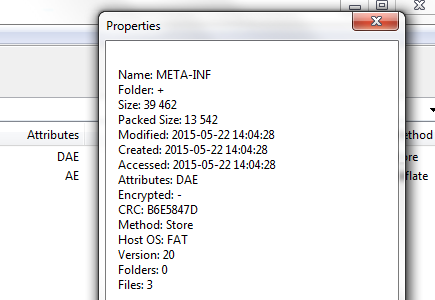I have recently been working with VM images and to transport & distribute them conveniently I had to zip them up. I mainly work in a Windows environment and I use 7-Zip for packing and unpacking archives. It’s actually quite nice (and free), if you don’t mind the spartan interface. On my workstation, I have NTFS file encryption (EFS) enabled on my home directory. The way this works is that you can selectively encrypt files and folders by setting a special attribute on these items.

I was in a hurry to prepare a VM image for a class and I used 7-Zip to archive the entire VM folder. The problem was, this encryption attribute was also recorded in the ZIP file and I only realized it when I unpacked it on a machine for testing right before the class started. On a machine that does not use NTFS, it warns the user and asks if it should continue extracting unencrypted. On a machine with NTFS, the destination files get encrypted and Windows starts nagging the user to back up the EFS keys. Compressing a 9 GB image into a 3 GB ZIP file took about 40 minutes, so there was really no time left to decrypt the files (EFS really sucks in this regard) and re-compress it into a ZIP file without encryption.
You can check whether a file is marked for encryption by checking the Attributes column in 7-Zip. (Note that this encryption attribute is native to NTFS and is different from ZIP file encryption.) The attribute string is somewhat cryptic but E means encrypted and A is archive. Interestingly, 7-Zip itself does not restore the encrypted attribute, but the native Windows unzipping functionality does.

Patch All The Things!
While I did not manage to solve this annoyance in time for the class, I had this idea to write a tool that would just patch the ZIP file. No changes need to be made to the file data and so there is actually no need to re-compress it.